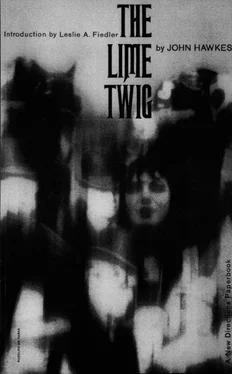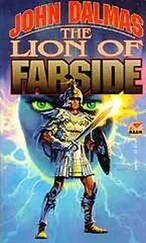John Hawkes
The Lime Twig
The Pleasures of John Hawkes by Leslie A. Fiedler
Everyone knows that in our literature an age of experimentalism is over and an age of recapitulation has begun; and few of us, I suspect, really regret it. How comfortable it is to be interested in literature in a time of standard acceptance and standard dissent — when the only thing more conventionalized than convention is revolt. How reassuring to pick up the latest book of the latest young novelist and to discover there familiar themes, familiar techniques — accompanied often by the order of skill available to the beginner when he is able (sometimes even with passionate conviction) to embrace received ideas, exploit established forms. Not only is the writing of really new books a perilous pursuit, but even the reading of such books is beset with dangers; and it is for this reason, I suppose, that readers are secretly grateful to authors content to rewrite the dangerous books of the past. A sense of déjà vu takes the curse off the whole ticklish enterprise in which the writer engages, mitigates the terror and truth which we seek in his art at the same time we cravenly hope that it is not there.
John Hawkes neither rewrites nor recapitulates, and, therefore, spares us neither terror nor truth. It is, indeed, in the interests of the latter that he endures seeming in 1960 that unfashionable and suspect stereotype, the “experimental writer.” Hawkes’ “experimentalism” is, however, his own rather than that of yesterday’s avantgarde rehashed; he is no more an echoer of other men’s revolts than he is a subscriber to the recent drift toward neo-middlebrow sentimentality. He is a lonely eccentric, a genuine unique — a not uncommon American case, or at least one that used to be not uncommon; though now, I fear, loneliness has become as difficult to maintain among us as failure. Yet John Hawkes has managed both, is perhaps (after the publication of three books and on the verge of that of the fourth) the least read novelist of substantial merit in the United States. I recall a year or so ago coming across an ad in the Partisan Review in which Mr. Hawkes’ publisher was decrying one of those exclusions which have typically plagued him. “Is Partisan ,” that publisher asked, “doing right by its readers when it consistently excludes from its pages the work of such writers as Edward Dahlberg, Kenneth Patchen, Henry Miller, John Hawkes and Kenneth Rexroth?”
But God knows that of all that list only Hawkes really needs the help of the Partisan Review . Miller has come to seem grandpa to a large part of a generation; while the two Kenneths are surely not without appropriate honors and even Dahlberg has his impassioned exponents. Who, however, reads John Hawkes? Only a few of us, I fear, tempted to pride by our fewness, and ready in that pride to believe that the recalcitrant rest of the world doesn’t deserve Hawkes, that we would do well to keep his pleasures our little secret. To tout him too widely would be the equivalent of an article in Holiday , a note in the travel section of the Sunday Times , might turn a private delight into an attraction for everybody. Hordes of the idly curious might descend on him and us, gaping, pointing — and bringing with them the Coca-Cola sign, the hot-dog stand. They’ve got Ischia now and Mallorca and Walden Pond. Let them leave us Hawkes! But, of course, the tourists would never really come; and who would be foolish enough in any case to deny to anyone daylight access to those waste places of the mind from which no one can be barred at night, which the least subtle visit in darkness and unknowing. Hawkes may be an unpopular writer, but he is not an esoteric one; for the places he defines are the places in which we all live between sleeping and waking, and the pleasures he affords are the pleasures of returning to those places between waking and sleeping.
He is, in short, a Gothic novelist; but this means one who makes terror rather than love the center of his work, knowing all the while, of course, that there can be no terror without the hope for love and love’s defeat. In The Cannibal, The Beetle Leg , and The Goose on the Grave he has pursued through certain lunar landscapes (called variously Germany or the American West or Italy) his vision of horror and baffled passion; nor has his failure to reach a wide audience shaken his faith in his themes. In The Lime Twig he takes up the Gothic pursuit once more, though this time his lunar landscape is called England; and the nightmare through which his terrified protagonists flee reaches its climax at a race meeting, where gangsters and cops and a stolen horse bring to Michael Banks and his wife the spectacular doom which others of us dream and wake from, relieved, but which they, improbably live.
It is all, on one level, a little like a thriller, a story, say, by Graham Greene; and, indeed, there is a tension in The Lime Twig absent from Hawkes’ earlier work: a pull between the aspiration toward popular narrative (vulgar, humorous, suspenseful) and the dedication to the austerities of highbrow horror. Yet Hawkes’ new novel finally avoids the treacherous lucidity of the ordinary shocker, the kind of clarity intended to assure a reader that the violence he relives destroys only certain characters in a book, not the fabric of the world he inhabits. In a culture where even terror has been so vulgarized by mass entertainers that we can scarcely believe in it any longer, we hunger to be persuaded that, after all, it really counts. For unless the horror we live is real, there is no point to our lives; and it is to writers like Hawkes that we turn from the wholesale slaughter on T.V. to be convinced of the reality of what we most fear. If The Lime Twig reminds us of Brighton Rock , which in turn reminds us of a movie by Hitchcock, it is of Brighton Rock recalled in a delirium or by a drowning man —Brighton Rock rewritten by Djuna Barnes. Hawkes, however, shares the effeteness of Djuna Barnes’s vision of evil no more than he does the piety of Greene’s vision of sin. His view avoids the aesthetic and the theological alike, since it deals with the mysteries neither of the world of art nor of the spirit — but only with the immitigable mystery of the world of common experience. It is not so much the fact that love succumbs to terror which obsesses Hawkes as the fact that love breeding terror is itself the final terror. This he neither denies nor conceals, being incapable of the evasions of sentimentality: the writer’s capitulation before his audience’s desire to be deceived, his own to be approved. Hawkes’ novel makes painfully clear how William Hencher’s love for his mother, dead in the fire-bombings of London, brings him back years later to the lodgings they once shared — a fat man with elastic sleeves on his thighs, in whom the encysted small boy cannot leave off remembering and suffering. But in those lodgings he discovers Banks and his wife Margaret, yearns toward them with a second love verging on madness, serves them tea in bed and prowls their apartment during their occasional absences, searching for some way to bind them, his memories, and his self together. “I found,” he reports of one such occasion, “her small tube of cosmetic for the lips and, in the lavatory, drew a red circle with it round each of my eyes. I had their bed to myself while they were gone.” It is, however, Hencher’s absurd and fetishistic passion which draws Michael Banks out of the safe routine of his life into crime, helps, that is, to turn a lifetime of erotic daydreaming about horses into the act of stealing a real race horse called Rock Castle.
Читать дальше












